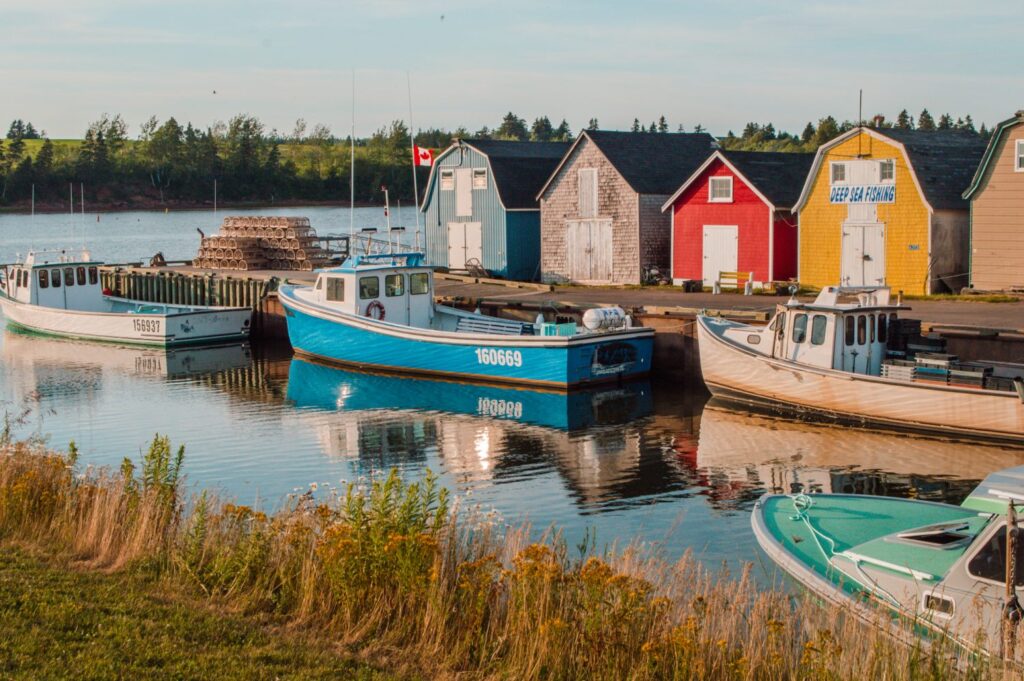Prince Edward Island is a small province located in Eastern Canada. It is known for its scenic beauty, red sand beaches, and warm hospitality. Life on Prince Edward Island (PEI) is peaceful, relaxed, and has a sense of community. The island offers a high quality of life, making it an excellent place to live, work and raise a family.
Career Opportunities at Prince Edward Island:
Despite being a small province, Prince Edward Island offers a diverse range of career opportunities. The province has a thriving economy with a mix of traditional and emerging industries. Agriculture, tourism, fisheries, and manufacturing are some of the key industries that provide employment opportunities.
Agriculture is the primary industry on the island, and it has a significant impact on the province’s economy. PEI is known for its high-quality potatoes, which are exported worldwide. The agriculture industry provides employment opportunities in various areas such as farming, agri-business, and food processing.
Tourism is another significant industry on the island, attracting millions of visitors every year. The industry provides employment opportunities in areas such as accommodation, food and beverage services, transportation, and retail.
The fishing industry is also essential to PEI’s economy. Lobster, mussels, and oysters are some of the key seafood products that are harvested on the island. The industry provides employment opportunities in fishing, processing, and exporting.
The manufacturing industry is another growing sector on the island, with companies involved in aerospace, biotechnology, and renewable energy. The industry provides employment opportunities in various areas such as engineering, manufacturing, research, and development.
Ontario, British Columbia, and Prince Edward Island Holds PNP Nominations
Job Scenario at Prince Edward Island
Job Market competitive but province has taken inititaves to promote Job Growth and Development
The job market on Prince Edward Island is competitive, but there are plenty of job opportunities available. The unemployment rate in the province is relatively low compared to other regions in Canada, making it easier for job seekers to find employment.
The provincial government has taken several initiatives to promote job growth and development on the island. Programs such as the Atlantic Immigration Pilot Program and the Rural and Northern Immigration Pilot Program have been implemented to attract skilled workers and entrepreneurs to the province.
The province also has various programs that support businesses, such as the Island Investment Development Inc. (iidi) and the Industrial Expansion Fund. These programs provide financial assistance to businesses, promoting growth and job creation.
Quality of life at Prince Edward Island- Peaceful and Relaxed- Region abounds with Scenic Beauty
Life on Prince Edward Island is peaceful and relaxed, with a strong sense of community. The island offers diverse career opportunities, with a mix of traditional and emerging industries. The job market is competitive, but with the right skills and qualifications, there are plenty of job opportunities available. The provincial government has taken several initiatives to promote job growth and development on the island, making it an excellent place to live, work and raise a family.
Prince Edward Island (PEI) is a beautiful province in Eastern Canada, known for its scenic beauty, friendly people, and welcoming culture. PEI has been actively recruiting and welcoming immigrants to the province, and the province has various immigration programs that are designed to attract skilled workers, entrepreneurs, and families.
Overview of the immigration process for Prince Edward Island:
The immigration process for Prince Edward Island involves determining eligibility, submitting an Expression of Interest, applying for permanent residency, waiting for processing, and receiving a decision. It’s important to note that the immigration process can be complex and time-consuming, and it’s important to work with an immigration professional to ensure that your application is complete and meets all the requirements.
How To Immigrate To Prince Edward Island (PEI) Through Provincial Nominee Program?
Determine eligibility:
The first step in the immigration process for PEI is to determine your eligibility for the different immigration programs available. The province offers several immigration programs, including the Prince Edward Island Provincial Nominee Program (PEI PNP) and the Atlantic Immigration Pilot Program (AIPP). These programs have different eligibility requirements, and it’s essential to understand which one you qualify for before proceeding with the application process.
Submit an Expression of Interest (EOI):
If you meet the eligibility requirements for any of the immigration programs, the next step is to submit an Expression of Interest (EOI) to the province. The EOI is a pre-application process that allows the province to evaluate your skills, work experience, education, language proficiency, and other factors. If your EOI is selected, you’ll receive an invitation to apply for permanent residency.
Apply for Permanent Residency:
Once you receive an invitation to apply for permanent residency, you’ll need to submit a complete application with all the required documentation. This includes forms, supporting documents, and application fees. The processing time for applications varies depending on the immigration program and the complexity of the case.
Wait for processing of Application:
After submitting your application, you’ll need to wait for processing. The processing time varies depending on the immigration program and the complexity of the case. It’s important to note that the processing time for immigration applications can be lengthy, and it’s important to be patient and prepared for the wait.
Receive decision on Immigration Application:
Once your application is processed, you’ll receive a decision from the immigration authorities. If your application is approved, you’ll receive a Confirmation of Permanent Residence (COPR) and a permanent resident visa. If your application is denied, you’ll receive an explanation of why your application was refused, and you may have the option to appeal the decision.

